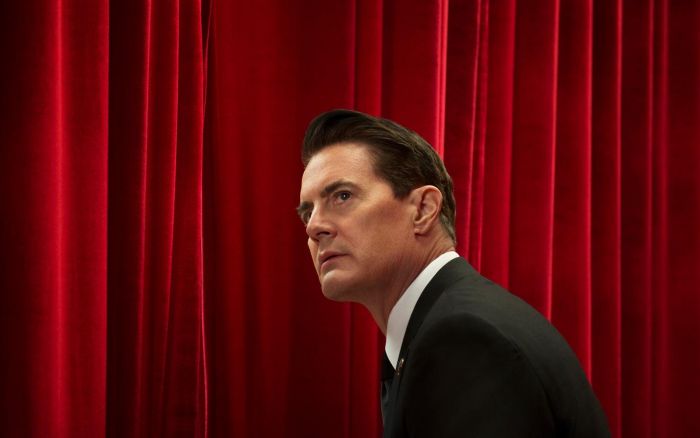Weekend Reads: Hitman Movies, Thor: Ragnarok, Twin Peaks, Cyberpunk, God’s Niceness & more

J Hurtado reviews Jean-Pierre Melville’s classic hitman movie, Le Samouraï. “I’ve only seen a handful of Melville’s films, but Le Samouraï is certainly the most unabashedly entertaining of the bunch. The way Melville and Delon’s sensibilities mesh is a thing of beauty, and the film would have been a completely different animal with any one other than Delon beneath the fedora.”
K. B. Hoyle considers Thor: Ragnarok’s treatment of the concept of national sin. “So the question becomes, for Thor and the Asgardians, and you the viewer, how do we balance our nation’s sins (the ugly truths of our past) with what does, in fact, make us great as a nation? To what should we cling, and of what should we repent to save our people and our very selves? What is true and good, and what is merely an icon?”

Chelsea and Jonathan Boes write about the spiritual significance of Twin Peaks. “It’s an artistic experience that makes no sense until you dive into it yourself. You may want to keep a thumb on the fast forward for a few scenes of nudity, and brace for some incredibly raw violence. But you’ll walk away with a gift. You will understand with your body and nerves things you may have before known only in your head — the profoundly Christian truths that the spiritual exists in the physical, that victims have voices, and that violence has a cosmic cause.”
If you’re a Christ and Pop Culture member, then I highly recommend this article on Stranger Things’ Joyce Byers. “She’s a literal mess: divorced, harried, works long hours to support her two latchkey sons, smokes like a chimney, and she’s a fighter. But I would argue that this axe-wielding woman — who clings and testifies to the truth on the behalf of her son when no one else believes her, who strings lights in the darkness to lead her son home, and who knows when to let her son feel actual pain — is a paragon of what biblical motherhood should look like.” And if you’re not a Christ and Pop Culture member, what are you waiting for?

According to Michael K. Spencer, Facebook is ripping society apart. “Did we actually believe that they would make the world a better place? We have created a monster and called it a tool for globalization, when it’s one of the greatest concentrations of misused and misguided power on the web — that is directly opposed to values of decentralization, corporate social responsibility, and freedom of speech and privacy that young people believe in.”
It may not look like the dystopia we saw in pop culture, but thanks to Silicon Valley entrepreneurs, we’re definitely living in the cyberpunk era. “So where does Silicon Valley’s love affair with cyberpunk go next? As far as it can along the cyberpunk’s roadmap of tech development — leading to ever more sophisticated virtual assistants and connected homes and augmented reality and wearables that hack into your very biorhythm. The relevancy of cyberpunk isn’t waning; its waxing.”

To understand the threat of artificial intelligence, just look at Silicon Valley corporations. “The fears of superintelligent AI are probably genuine on the part of the doomsayers. That doesn’t mean they reflect a real threat; what they reflect is the inability of technologists to conceive of moderation as a virtue. Billionaires like Bill Gates and Elon Musk assume that a superintelligent AI will stop at nothing to achieve its goals because that’s the attitude they adopted.”
I’ve read lots of takes on The Last Jedi, but this is one of my favorites. “It does us no favors to imagine that we can ever become immune to darkness. Fear, hatred, and jealousy will always come back for us, and we will always, sometimes, fail to resist. You will struggle, and sometimes fail. Don’t flinch, read that again. Read it without judgment, knowing that failure says nothing about strength, your ability to succeed, or the futility of hope, love, and kindness. Failure is, as Master Yoda says, the greatest teacher.” (And in case you missed it, here’s my review.)

If you’re looking for some year-end nerdery, then io9’s got you covered. Here are the best, worst, and most unforgettable movie moments of 2017, the best and worst moments in the comics of 2017, the best and worst TV moments of 2017, the best and worst captains of 2017, the 15 best comics of 2017, the best and worst TV shows of 2017, and the best and worst movies of 2017.
Maika Elan is documenting her efforts to befriend hikikomori in Japan. “The most widely reported cases of hikikomori are from middle- and upper-middle class families whose sons, usually the eldest, refuse to leave home. This is typically after having experienced one or more traumatic episodes of social or academic failure. However, hikikomori are hidden away and their parents are often reluctant to talk about the problem.”

According to Russell D. Moore, American Christianity is “old and sick and weak.” More: “We are bored by what the Bible reveals as mysterious and glorious, and red-in-the-face about what hardly matters in the broad sweep of eternity. We clamor for the kind of power the world can recognize while ignoring the very power of God that comes through Christ and him crucified. We’ve traded in the Sermon on the Mount for slogans on our cars. We’ve exchanged Christ the King for Christ the meme. And through it all, we demonstrate what we care about — the same power and self-leverage this age already values.”
Rod Dreher interviews author Ulrich Lehner about God’s (lack of) niceness. “Once we use ‘nice’ to describe God, we smuggle in vagueness, shallowness, and subjective pleasantness to describe the Divine. It’s a symptom of our time that we think of God in these terms — we only want a God who makes us feel good and help us, but that is ultimately an abuse of God, and idolatry, as C.S. Lewis already realized.”